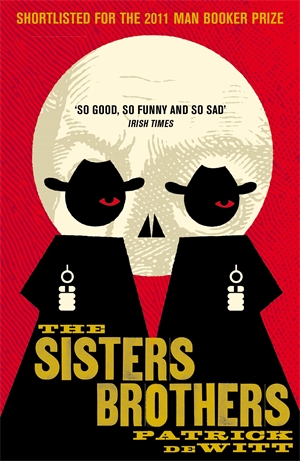Rarely have we seen such a neurotic antihero in a revisionist western as Eli Sisters of The Sisters Brothers. Encumbered less by loyalty than by his own wanting self-worth, Eli suffers from loneliness, longing for the companionship of a woman. Laboring in the shadow of his irreproachably masculine outlaw brother, Charlie, he confesses to rarely having known a woman longer than a night; even with prostitutes, he favors discourse over intercourse. At one point Eli admits, “I saw my bulky person in the windows of the passing storefronts and wondered, When will that man there find himself to be loved?”
Eli does not share his brother’s love for whiskey and whorehouses. He is fastidious about his health. He is worried about his weight and cares achingly for his horse. After a dentist gives him tooth powder and a toothbrush, a new invention at the time, he shows it to a woman he is trying to impress; excitedly, she retrieves her toothbrush so that they can brush their teeth together. “So it was that we stood side by side at the wash basin,” he reflects, “our mouths filling with foam, smiling as we worked.”
The Sisters Brothers is not the typical western, which (with the possible exceptions of Little Big Man and Butch Cassidy and the Sundance Kid) rarely makes use of humor as a convention, particularly a humor so absurd. But Patrick deWitt has found a way to isolate and quarantine the conventions of the traditional revisionist western, permitting himself a degree of risk-taking that leaves the reader no less aware of his fearlessness. Eli’s neuroticism is both humorous and sad; we’re not sure whether we should laugh at him or fear him.
Eli is dangerous by reputation, though, and people do fear him—his romantic idealism is an impediment only to Charlie, who is inordinately fixated by his own sheer lust for women and booze and money. Charlie is brutal and invasive, always demanding to make decisions and be in charge—in a sense, the typical outlaw, the human Yosemite Sam. Yet Eli never backs down. Early in the novel, while traveling on horseback, he sings a “mawkish ballad” meant only to irritate Charlie in a brotherly manner:
“His tears behind a veil of flowers, the news came in from town.”
“Oh, all right.”
“His virgin seen near country bower, in arms of golden...
You have reached your article limit
Sign up for a digital subscription and continue reading all new issues, plus our entire archives, for just $1.50/month.
Already a subscriber? Sign in





